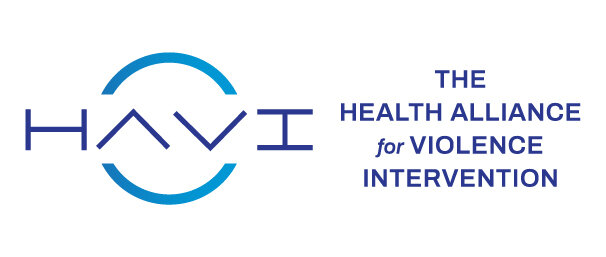The HAVI
Overview of the HAVI
The 2022 HAVI Impact Report
HVIP Background
What is an HVIP?
Hospital-Based Violence Intervention Programs: HVIPs Weave Social Care into Medical Care
Rochelle Dicker, MD
Hospital-based violence intervention programs (HVIPs) provide comprehensive care to violently injured patients, addressing psychological trauma, risk factors for violence, and social determinants of health. HVIPs seek to reduce community violence that occurs outside the home, such as assault by strangers and acquaintances, violence perpetrated during criminal activity, and violence in workplaces and schools.
HAVI Position Brief
HVIP Implementation and Best Practices
HAVI Standards & Indicators for Hospital-based Violence Intervention Programs (HVIPs)
Hospital-based Violence Intervention Program Retrospective Assessment: Findings from the New Jersey Cohort
In 2019, the New Jersey Office of the Attorney General (NJOAG) invested $20 million dollars to strengthen HVIPs across New Jersey. The funding was used to launch seven new HVIPs and to expand the services offered by an additional two existing programs (the NJ Cohort). NJOAG also awarded funding to the Health Alliance for Violence Intervention to provide extensive training and technical assistance to the NJ cohort.
In 2022, the HAVI and its fiscal sponsor, Health Resources in Action (HRiA), received funding from the Robert Wood Johnson Foundation (RWJF) to conduct a retrospective assessment of the NJ cohort. This research brief summarizes the main findings of the retrospective assessment.
Violence is Preventable: A Best Practices Guide for Launching & Sustaining a Hospital-based Program
Naneen Karraker, MA, Rebecca Cunningham, MD, Marla Becker, MPH, Joel Fein, MD, MPH, and Lyndee Knox, PhD
Across the country, members of the HAVI are engaging patients in targeted services during their recovery to interrupt the cycle of violence. In 1998, the U.S. Department of Justice, Office for Victims of Crime recommended that “hospital-based counseling and prevention programs be established in medical facilities that provide services to gang violence victims.” This guide supports the development of these programs in medical facilities across the country.
HVIPs and the Community Violence Intervention (CVI) Ecosystem
Hospital-based Violence Intervention Programs (HVIPs) & Trauma Recovery Centers (TRCs) Keys To Recovery Brief
Racial Equity Framework for Community Violence Intervention Solicitations
Perceptions of Gun Violence and Solutions
Public Response to Community Violence Intervention Messages
In July 2023, the Health Alliance for Violence Intervention (HAVI) partnered with Data for Progress to test how various audiences responded to different messages about community violence intervention (CVI). Highlights from the findings are included in this document and can be used by HAVI members and partners to inform their approaches to communicating about the value of CVI services and programs in preventing violence and healing communities.
HVIP and CVI Funding
Transformative Guidance on Victim Services Funding for Hospital-Based Violence Intervention Programs
This toolkit is intended to enhance the potential of VOCA administrators to support programs serving victims of community violence and other crimes, especially those victims whom programs do not typically reach.
Medicaid: Advancing Equity for Survivors of Violence
This brief explores how states can utilize and modernize their existing Medicaid programs to advance equitable care for survivors of violence.
Supporting Male Survivors of Violence
Best Practices for Training Frontline Violence Intervention Workers
Mariana Garrettson (The Health Alliance for Violence Intervention) and Anne Marks (Youth ALIVE!)
Best Practices for Supporting Frontline Violence Intervention Workers
Adrian Sanchez (The Health Alliance for Violence Intervention) and Kevin Stewart, MS (Cure Violence)
Keys to Collaboration Between Hospital-based Violence Intervention and Cure Violence Programs
Anne Marks (Youth ALIVE!), Lori Toscano (Cure Violence), and Matan Zeimer (Cure Violence)

